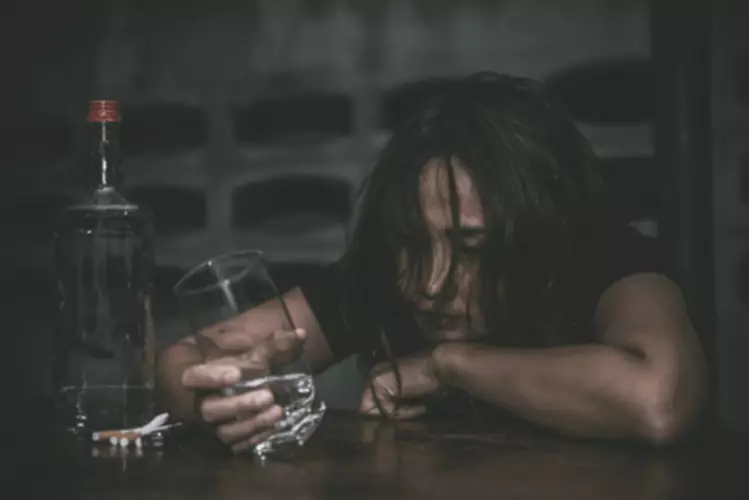
Content
Treatment for skin issues related to AUD will typically involve two processes. One is treating the AUD, and the other is treating any underlying conditions that may remain after a person stops consuming alcohol. https://ecosoberhouse.com/article/why-alcohol-makes-you-feel-hot-and-sweat-after-drinking/ Having a glass of water in between each alcoholic drink may decrease the risk of dehydration. If you or a loved one struggles to regulate or limit alcohol consumption, you don’t have to do it alone.

Alcohol is almost entirely empty calories, and prolonged alcohol consumption causes gut inflammation that can prevent your body from absorbing essential nutrients from the foods you eat. You will likely also make unhealthy choices when drinking that you wouldn’t make when sober, such as ordering greasy fast food. Due to issues like these, heavy drinking leads to weight gain that becomes increasingly hard to lose and can make you look years older. Alcoholic drinks, especially cocktails and wine, are high in sugar, and consuming more than the recommended amount will show up on your skin. Sugar has been demonstrated to increase the likelihood of breakouts or acne by causing the face to produce too much oil. If you have rosacea, drinking alcohol will likely exacerbate your symptoms.
An impaired immune system can result from too much alcohol leaving an individual more susceptible to bacterial and fungal skin infections. There is even evidence to suggest an increased risk of skin cancer, when coupled with so-called risky behaviors such as smoking and unprotected sun exposure. The first thing to be seen after you stop drinking alcohol is a healthier-looking complexion. Whether you decide to cut down on drinking or completely stop, avoiding alcohol is inevitably going to be great for your skin. «Alcohol is a toxin with very little nutrient value,» says Dr Liakas.
According to the National Institutes of Health, approximately 30–50 percent of alcoholics have low zinc, which can cause hair loss. Other contributing factors to hair loss that come from consuming too much alcohol are lower levels of vitamin B and C and higher levels of estrogen, according to The Alcoholism Guide. The least damaging types of alcohol for skin are lighter drinks with no additives—such as gin, vodka, or tequila. According to Centers for Disease Control (CDC), moderate drinking means up to one drink per day for women, or two drinks per day for men. But depending on your situation, you may choose to drink less than this. Dark liquors contain compounds called congeners, which are theorized to cause worse hangovers than other types of alcohol.
Amanda Marinelli is a Board Certified psychiatric mental health nurse practitioner (PMHNP-BC) with over 10 years of experience in the field of mental health and substance abuse. Amanda completed her Doctor of Nursing Practice and Post Masters Certification in Psychiatry at Florida Atlantic University. She is a current member of the Golden Key International Honor Society and the Delta Epsilon Iota Honor Society.
Summary: Consuming alcohol (equivalent to about a glass of wine) can make the drinker appear more attractive than when sober, according to new research. However, the effect disappears when more is consumed.
The body flags alcohol as a toxin, and the liver focuses on breaking down alcohol before any fat, carbohydrate, or protein. When the liver is constantly working to process alcohol rather than food, you start to gain weight. In the case of heavy drinkers, alcohol can cause so much damage to the liver that it stops functioning properly, which can lead to deadly conditions such as fatty liver disease or cirrhosis.
Two studies have shown that alcohol consumption can result in weight gain, but not exactly for everyone. Those who choose to have a relaxing alcoholic beverage every once in a while aren’t linked to obesity. According to a study at the University of Navarra, Spain, it is definitely possible for heavier drinkers to be the ones to gain weight directly related to their drinking habits. Another study at the Children’s Hospital of Eastern Ontario Research Institute says the same.
At Muse Treatment, we encourage our patients to take an introspective look within to find out how quitting alcohol changes your appearance to regain their passion for life again. By going through therapy sessions, themed sessions are available, and educational lectures, you will learn more about the nature of addiction and how it has personally affected you. You will gain insight on various coping strategies that will have you well equipped does alcohol make you look older to handle the ups and downs of life that used to produce triggering feelings and responses. Our expert team of counselors will help you learn more about your emotional awareness and ability to emotionally regulate when in high-stress or uncomfortable situations. Patients with alcohol addiction often experience red, puffy skin. This is due to a condition called “skin flushing,” which produces redness on the face, nose, and cheeks.